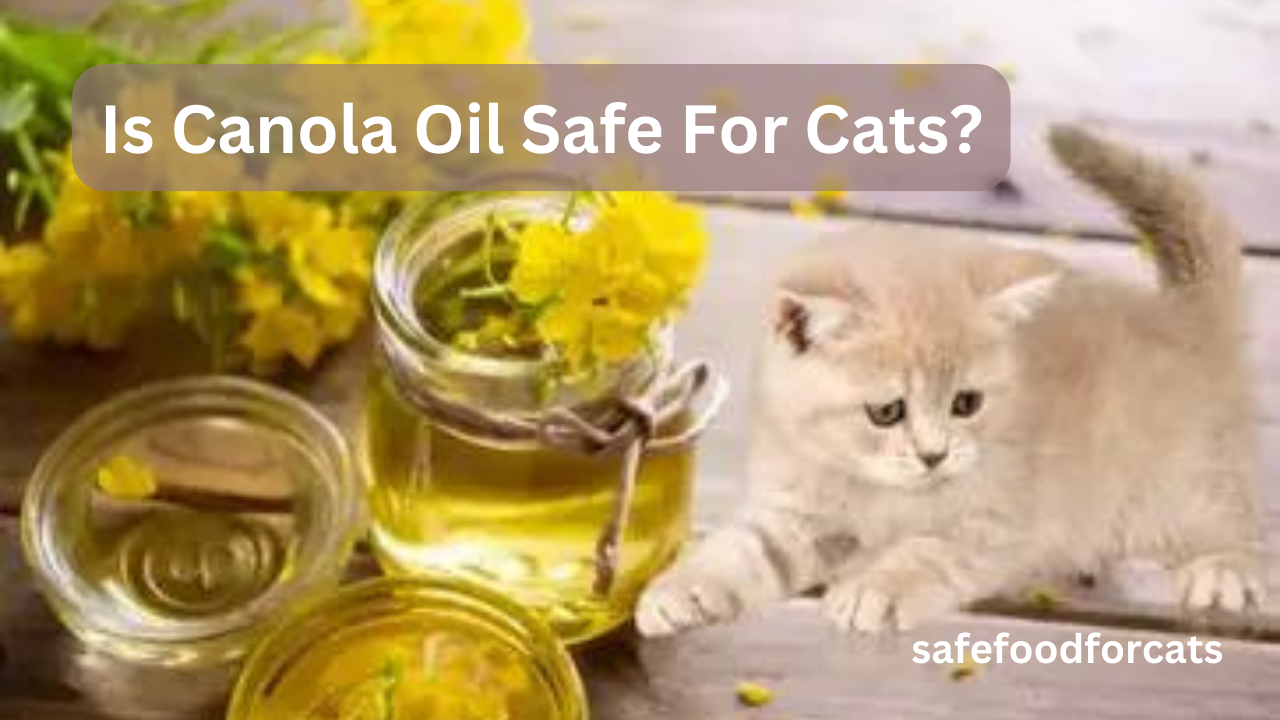As responsible pet owners, our primary concern is the well-being of our feline friends. When it comes to the food we prepare for ourselves, the curiosity of our cats often leads them to desire a taste of everything we cook. However, as vigilant pet guardians, it is crucial to research and determine if any human food, such as canola oil, is safe for cats. Canola oil, derived from the rapeseed plant, is renowned for its neutral taste, high smoke point, and numerous culinary applications. Its health benefits for humans, including its low saturated fat content and elevated levels of mono and polyunsaturated fatty acids, make it an attractive option for daily cooking. Nonetheless, the question of whether canola oil is suitable for feline consumption remains uncertain due to the distinct physiological and dietary requirements of cats.
Understanding Canola Oil
Canola oil, originally developed in Canada, is processed from the rapeseed plant. Through a series of transformations, its chemical and physical composition is altered to create a healthy cooking oil that is light yellow and devoid of any strong taste. Its smoke point makes it suitable for various cooking methods, including frying, baking, and sautéing. The human health benefits of canola oil, such as its potential to lower cholesterol, blood pressure, and body fat composition, and its ability to support cardiac health, have been widely studied and acknowledged.

Vets’ Opinions on Canola Oil for Cats
The veterinary community has mixed opinions on whether canola oil is safe for cats. While there are no specific reports of adverse reactions caused by canola oil in feline diets, it is essential to remember that cats have unique nutritional needs and physiological differences from humans. As obligate carnivores, cats rely heavily on animal-based proteins for their diet, and their digestive systems are adapted to process a specific balance of nutrients from meat sources.
Nutritional Requirements for Cats
Understanding the nutritional requirements of cats is crucial to providing them with a balanced and healthy diet. Cats require high levels of protein, specific amino acids (such as taurine and arginine), essential fatty acids, vitamins (A, D, E, and B-complex), and minerals (calcium, phosphorus, and potassium). Lack of these essential nutrients can lead to severe health problems, including cardiac issues, compromised immune systems, and impaired growth and development.
Canola Oil and Feline Health
While there have been no widespread reports of canola oil causing harm to cats, its suitability as a regular addition to their diet is questionable. The primary concern lies in the fact that canola oil is not a natural part of a cat’s diet. Although it may offer some nutritional benefits, its high content of omega-6 fatty acids, if overconsumed, could lead to an imbalanced ratio of omega-3 to omega-6 fatty acids in the feline diet. Such an imbalance could potentially promote inflammation and contribute to health issues.
Promoting Healthy Feline Diets
As responsible pet owners, we must prioritize the health of our cats and ensure they receive appropriate nutrition. Commercial cat foods that are specially formulated to meet feline dietary requirements are widely available. These cat foods are developed with input from veterinary nutritionists and adhere to strict quality and safety standards. By feeding our cats a balanced and complete diet designed for their specific needs, we can ensure they receive all the essential nutrients required for their overall well-being.
Potential Risks of Feeding Human Foods to Cats
Apart from canola oil, other human foods may pose risks to cats. Some common foods, such as onions, garlic, chocolate, grapes, and raisins, are toxic to felines and should never be offered to them. Additionally, certain spices and flavorings used in human cooking may not be safe for cats’ sensitive digestive systems.
Managing Obesity and Heart Issues in Cats
Similar to humans, obesity and heart issues are prevalent and dangerous health concerns in cats. Obesity can lead to a range of health problems, including diabetes, arthritis, and respiratory issues. Cats with obesity are also at a higher risk of developing cardiovascular problems. Feeding a balanced and appropriate diet, along with regular exercise, is crucial for maintaining a healthy weight and promoting a strong heart in our feline companions.

Conclusion
While there is no definitive evidence to suggest that canola oil is harmful to cats, it is essential to approach its inclusion in feline diets with caution. Cats have unique nutritional requirements that are best met through a balanced and tailored diet of commercial cat food. Canola oil, though beneficial for humans due to its low saturated fat content, should not be considered a regular part of a cat’s diet. When it comes to the health of our feline friends, consulting a veterinarian with expertise in feline nutrition is vital to make informed decisions about their diet and overall well-being. By prioritizing their specific nutritional needs and avoiding potentially harmful human foods, we can ensure that our beloved cats lead healthy and fulfilling lives.

